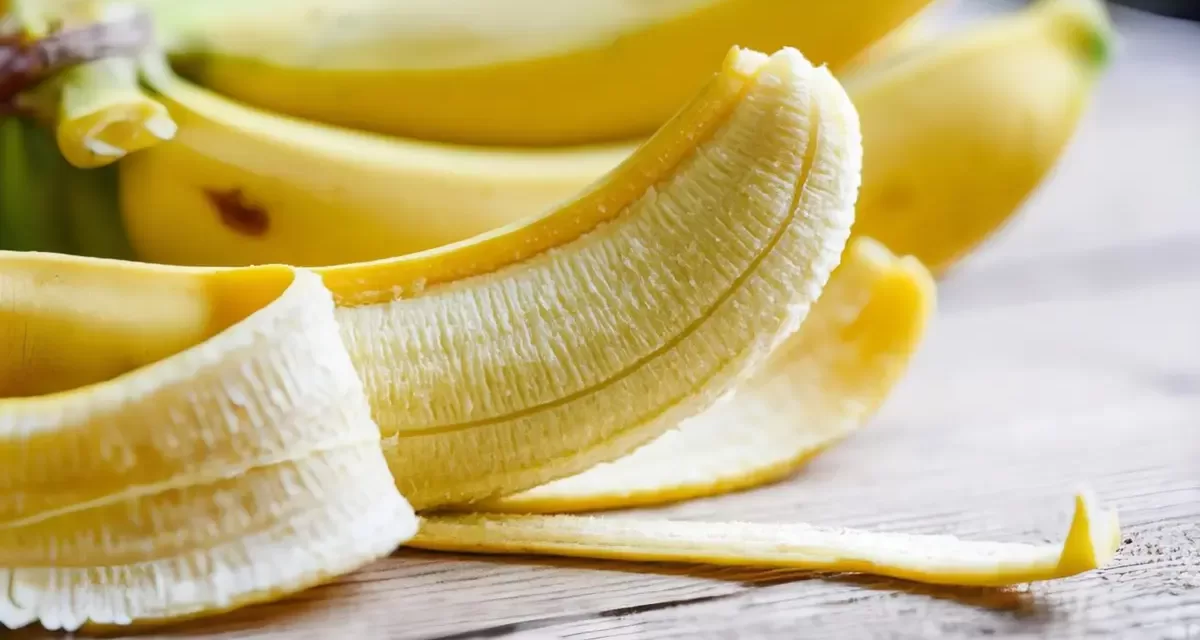Have you ever wondered where your banana peel goes after you casually toss it in the trash? It turns out, that seemingly useless skin might be missing out on an exciting second life as a powerful, cancer-fighting ingredient. Researchers have recently discovered that by blanching, drying, and grinding banana peels into flour, you can transform the discarded part of your banana into a nutritious, delicious addition to your meals.
The Science Behind the Snack
In a groundbreaking study, scientists demonstrated the surprising benefits of banana peel flour. When incorporated into sugar cookies, the peel flour added a wealth of nutrients, including higher levels of fiber, magnesium, potassium, and antioxidants, all while maintaining a satisfying taste. In fact, taste testers reported that they enjoyed the cookies just as much as those made with regular wheat flour.
However, there’s a twist: too much banana peel flour can affect the texture of the baked goods. When the proportion of peel flour exceeded a certain threshold, cookies became a bit harder and brown due to the added fiber. But a balanced approach—using 7.5 percent banana peel flour—resulted in a perfectly delicious, slightly chewy texture.
The benefits don’t stop there. Unlike many baked goods that spoil quickly, cookies made with banana peel flour were found to remain fresh even after being stored at room temperature for three months.
Beyond Cookies: More Applications for Banana Peel Flour
Though this particular study focused on cookies, it hints at a broader range of possibilities for using banana peel flour in the kitchen. Researchers suggest that banana peel flour could enhance breads, cakes, and even pasta. A previous study revealed that banana peels not only increase the nutritional value of cakes but can also provide natural food coloring.
Creative chefs have been experimenting with banana peels in curry dishes, while vegan bloggers have found innovative ways to use them, from banana peel bacon to pulled peel “pork.” The humble peel is proving to be a versatile and sustainable ingredient.
A Nutritional Powerhouse
Banana peels aren’t just good for the environment; they’re also packed with health benefits. Rich in vitamins like B6 and B12, they help improve energy levels, brain function, and red blood cell production. The high potassium and magnesium content of banana peels is great for heart health, muscle function, and maintaining healthy blood pressure. They also contain fiber, which supports digestion, gut health, and regular bowel movements.
In addition, banana peels are full of antioxidants that help combat oxidative stress, potentially reducing the risk of chronic diseases. Some studies even suggest that these antioxidants may have anti-inflammatory effects, offering protection from cell damage caused by free radicals.
A Sustainable Solution to Food Waste
Turning banana peels into flour not only boosts your health but also addresses the growing global issue of food waste. Did you know that nearly 40 percent of a banana’s weight comes from its peel? Despite this, most people throw it away. By converting banana peels into flour, we can make better use of this often-discarded part of the fruit, while also creating a sustainable, eco-friendly food source.
And it’s not just banana peels that can be turned into flour. The study also explored the potential of other fruit peels, such as those from mangoes and oranges, to add nutritional benefits to baked goods. Orange peel, for example, can improve a cake’s antioxidant properties while adding a distinct flavor.
The Future of Fruit Peels in the Kitchen
This research, led by scientists at Aligarh Muslim University (AMU), opens the door to rethinking how we use fruit peels in our daily cooking. Next time you peel a banana, instead of tossing the skin away, consider the nutritional potential hidden within. Banana peel flour could soon become a staple in many kitchens, offering a healthy, sustainable, and tasty alternative to traditional ingredients.
The study was published in the ACS Food Science & Technology journal, further highlighting the growing interest in sustainable food practices and the untapped potential of what we often discard.
So, the next time you’re about to throw away a banana peel, think twice—your trash might just be your next delicious, cancer-fighting snack.












